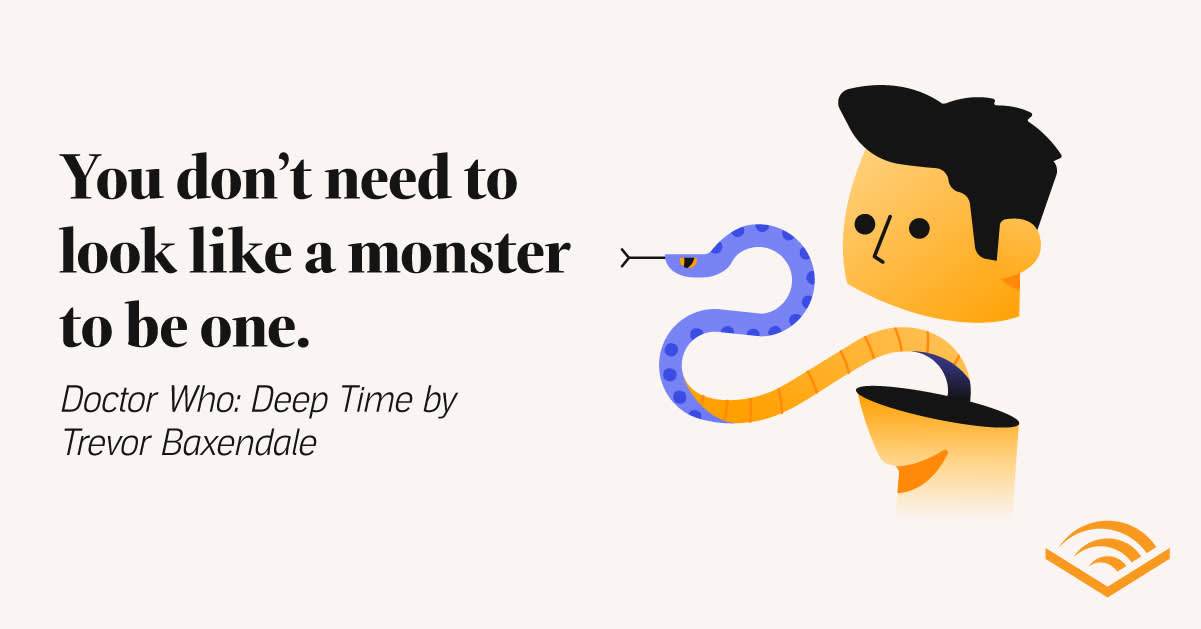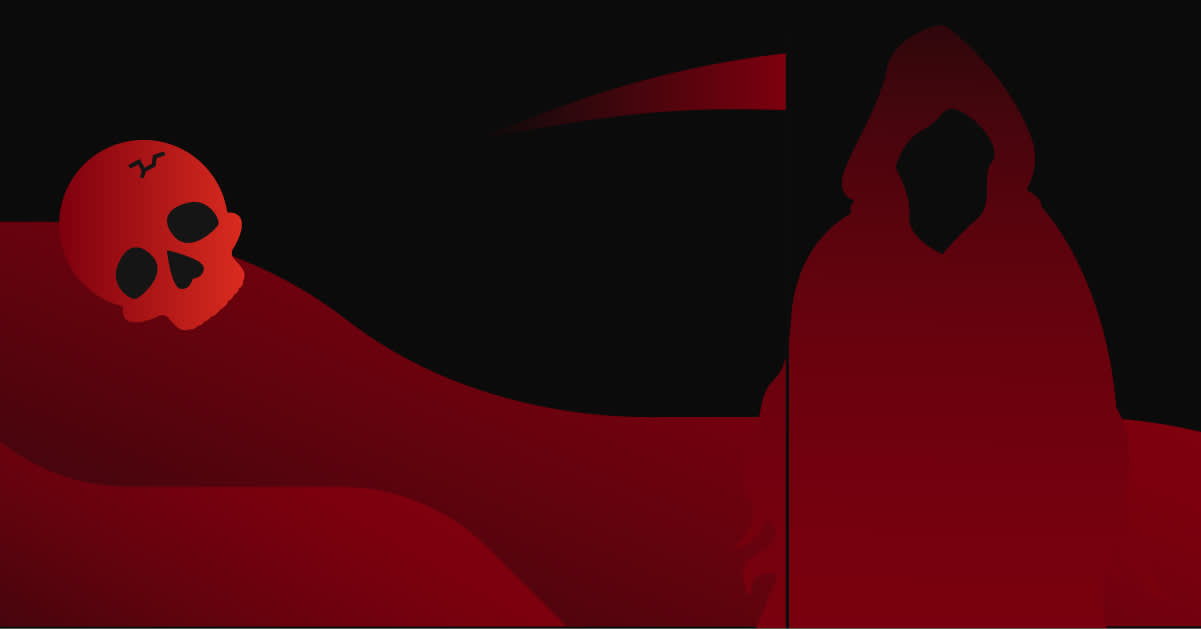More than a century before we could clamor online for the next Stephen King or George R. R. Martin novel, Arthur Conan Doyle found himself beset by legions of readers who loved Sherlock Holmes, the fictional detective who first appeared in print in 1887’s “A Study in Scarlet.” By 1891, The Strand literary magazine in London had begun publishing and promoting stories about Sherlock Holmes, whose passions included Victorian-era forensic science, deductive reasoning, and cocaine, and whose exploits were (mostly) narrated by Holmes’s polar opposite comrade-in-arms, Dr. Watson. By 1893 Conan Doyle wanted to extricate himself from the demands of a huge, devoted, and ravenous readership, and so he wrote a short story aptly named “The Final Problem.” Holmes revealed to Watson the existence of uber-villain Professor Moriarty, and while fighting said nemesis, Holmes plunged from Reichenbach Falls into “that dreadful cauldron of swirling water and seething foam.” Problem solved, or so thought the author…
Reichenbach Falls is a real place in Switzerland, known to Conan Doyle’s audience as a death drop. Even though the term “cliffhanger” had come into existence only in 1892 (I Google so you don’t have to!), my personal opinion is that Conan Doyle was aware of the term, and definitively penned a scene where, from the cliff, there was no hanging! Unfortunately, the author seemed to have been surprised by the existence of “fans,” which was a shortened version of “fanatics,” coined in 1892 (thanks again, Google!) for devotees of American football. Sherlock Holmes fans stunned Conan Doyle with their outrage over their favorite character’s demise; The Strand almost went under from the volume of canceled subscriptions, and one letter written to Conan Doyle saluted him as “You Brute!”
He eventually caved to the audience demand, first with a “flashback” to when Holmes was still alive in the timeline, the novel The Hound of the Baskervilles—serialized in 1901 and 1902 in the long-suffering Strand—and then eventually with a short story that restored Sherlock Holmes to life: “The Adventure of the Empty House.” In that story, Holmes explains to Watson that he faked his death to confound his enemies, but doesn’t explain the gap in the timeline between 1891 and 1894, a period known by Holmesologists as “The Great Hiatus.” Today Guinness World Records lists Sherlock Holmes as the most portrayed literary human character in film and television history, an achievement due in no small part to what we now call “the fandom.” The 56 short stories and four novels (all available in audio if you click through the list below) set in Victorian and Edwardian Europe, written between 1887 and 1927, constitute the cradle of that fandom, the Holmes original canon.
If you have ever lain awake at night wondering about “the dog who didn’t bark,” as a metaphor for something you may have missed, you’ve internalized Holmes-world and I salute you. (Also? I recommend the version of “Silver Blaze” included in the incomparable Sherlock Holmes audio introduced by Stephen Fry. Sometimes we all need to unwind a
bit before bedtime with a nice book.) A lot of us fans come to spin-offs because of film and TV; Holmes has been portrayed by Basil Rathbone, Peter Cushing, and Rupert Everett. (I’m going to include Hugh Laurie in this list because of the TV show House. It might not be canon technically, but his deeply satisfying portrayal of deductive reasoning as a Holmesian superpower wins me over every time.) More recently, the trio of Robert Downey Jr. (who played an action-hero Holmes in the 2009 steampunk-inflected film), Benedict Cumberbatch (as the internet age detective in Sherlock), and Henry Cavill (who shows emotional intelligence in Enola Holmes) have each renewed Holmes by bringing out new facets of who the world’s best and most flawed private detective can be.
As richly as the shows above plumb the depths of Sir Arthur Conan Doyle’s most fascinating protagonist, fanfic about his friends and family often furnishes the jumping-off point to an entirely new and expanded context for Holmes. The canon limits Sherlock’s family to an older brother: the supposedly more intelligent Mycroft, who works by day as a civil servant and retires to the Diogenes club each evening. Fan fiction, however, endows Mycroft and Sherlock with an entire affinity! Nancy Springer gave them a sister, the incomparable Enola Holmes. Laurie King’s Mary Russell novels show how an older Holmes might react to a post-Edwardian (dare we say feminist?!) partner-in-crime-solving. And Neil Gaiman expanded the Holmes universe geographically (to China!) in his short story “Case of Death and Honey.” When Gaiman read the story at World Fantasy Con in 2011, a moment of complete, awed silence punctuated his inspired and inspiring performance before the applause broke out. (Happily, anyone can enjoy his narration of the story in the audio version of Trigger Warning.)
In our shared joy of finding a new corner of the Sherlock Holmes universe together at WFC, Holmes fandom appeared inextricable from the universe it helped to build. Fans encouraged the author to keep the Holmes narrative alive in the 19th century; fan devotion fueled the Sherlock Holmes universe of book, film, TV, streaming, comics, audio, and games. In the 21st century, the game has never been more afoot!
Audible’s award-winning addition to the Sherlock Holmes universe, Moriarty: The Devil's Game, dares to ask: What if Holmes’s most villainous nemesis was actually an innocent man? Featuring Dominic Monaghan in a riveting lead performance, Moriarty turns one of literature’s most famous rivalries on its head.
In Sherlock Holmes: Beyond the Elementary, you’ll investigate the history behind Sir Arthur Conan Doyle’s genius, charismatic detective. James Krasner, a scholar of British Victorian literature, will play the role of ''Watson'' as he offers a clearer picture of the imaginative influence Sherlock Holmes has maintained over readers from the 19th century through today.
A lifelong fan of Sir Arthur Conan Doyle’s detective fiction, Stephen Fry has narrated the complete canon of Sherlock Holmes. Exclusively for Audible, Stephen has written and narrated nine insightful and personal introductions to highlight his personal favorites.
Holmes, meet Watson! Originally named A Tangled Skein, this is the origin of the Sherlock Holmes detective story, first published in 1887. Sir Derek Jacobi reads Sir Arthur Conan Doyle’s mystery, the tale that launched an entire fictional universe.
Published in 1890, this novel sets a familiar Sherlockian tone: as dense yellow fog swirls through the streets of London, a deep melancholy has descended on Sherlock Holmes, who sits in a cocaine-induced haze at 221B Baker Street.
Serialized in The Strand in 1901-1902, the first new Sherlock Holmes story after eight fallow years gratified Conan Doyle’s voracious fans. This novel, set in the Holmes timeline before his plunge from Reichenbach Falls, asks the question: Could the sudden death of Sir Charles Baskerville have been caused by the gigantic ghostly hound?
Serialized in The Strand in 1914-1915, and narrated by Simon Prebble a century later, this novel is for the Moriarty stans. This title includes the 1893 short story ''The Final Problem' as a bonus.
In this novel narrated by sublime Audible Hall of Fame talent Katy Kellgren, 14-year-old Enola Holmes follows clues left by her mother, while her older brothers, Mycroft and Sherlock, underestimate her resourcefulness and observational talent.
The first episode in the best-selling series. In 1915, Sherlock Holmes is retired and quietly engaged in the study of honeybees when a young woman literally stumbles into him on the Sussex Downs. Fifteen years old, gawky, egotistical, and recently orphaned, the young Mary Russell displays an intellect to impress even Sherlock Holmes—and match him wit for wit. Under his reluctant tutelage, this very modern 20th-century woman proves a deft protégée and a fitting partner for the Victorian detective.
A riveting, deeply atmospheric tale of murder and menace from the only writer to earn the seal of approval from Conan Doyle's estate, Moriarty breathes life into Holmes's dark and fascinating world.
Kareem Abdul-Jabbar (yes, that Kareem Abdul-Jabbar!) riffs on a key observation about Mycroft Holmes from his brother Sherlock: ''When I say, therefore, that he has better powers of observation than I...I am speaking the exact and literal truth.''
Thirteen authors come together to pen short stories innovating Sherlock Holmes, adapting and revolutionizing the iconic character.
Benedict Cumberbatch reads these four new Sherlock Holmes stories by John Taylor: ''An Inscrutable Masquerade,'' ''The Conundrum of Coach 13,'' ''The Trinity Vicarage Larceny,'' and ''The 10.59 Assassin.''
Sherlock Holmes spinoffs can be painful and sublime at the same time, as in this award-winning novel by Michael Chabon. Retired to the English countryside, an 89-year-old man, rumored to be a once-famous detective, is more concerned with his beekeeping than with his fellow man. Into his life wanders Linus Steinman, nine years old and mute, who has escaped from Nazi Germany.
Only one of these stories is about Sherlock Holmes, and it’s my single favorite expansion of the original canon. All of the stories in this collection, however, are gems, and narrated to perfection by author Neil Gaiman. Enjoy!
The latest installment of Audible’s blockbuster addition to the Sherlock Holmes universe, Moriarty: The Silent Order features Dame Helen Mirren in a deliciously villainous performance, with Dominic Monaghan (Moriarty) and Phil LaMarr (Holmes) returning to their leading roles. The all-star cast’s performances, paired with a meticulously crafted sound design, make for a truly electrifying audio experience. You’ve been warned: The game is once again afoot.




















